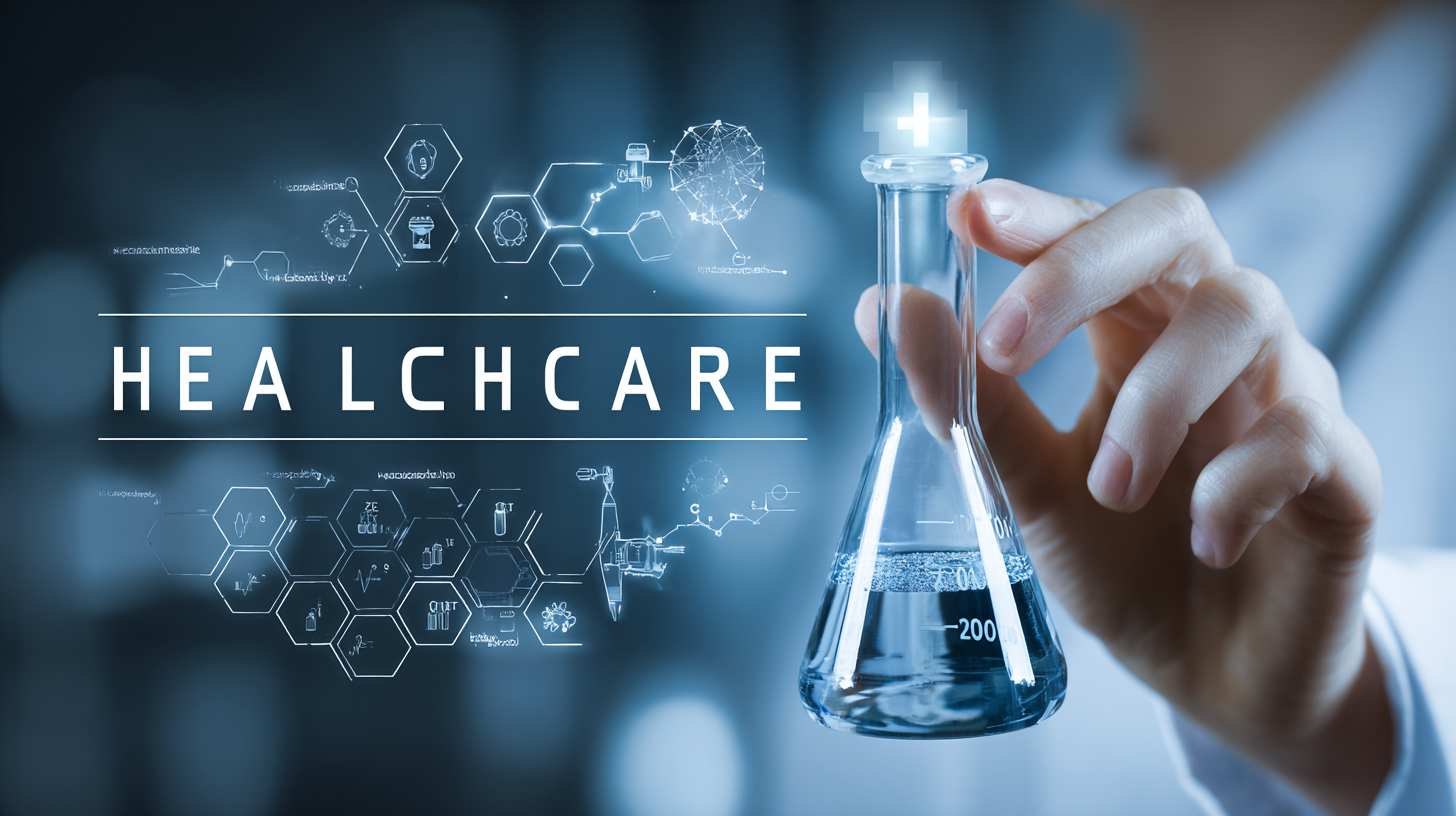Blog
Unlocking Secrets: A Comprehensive Tutorial on Choosing the Best Healthcare Research Solutions
In today's rapidly evolving healthcare landscape, the importance of effective healthcare research cannot be overstated. According to a recent report by the Global Market Insights, the healthcare research industry is expected to exceed $90 billion by 2025, driven by an increasing demand for innovative treatment solutions and data-driven decision-making. This surge underscores the necessity for organizations to select optimal research solutions that cater to their specific needs. With healthcare becoming more complex, researchers face challenges in navigating vast amounts of data and varied methodologies. Thus, understanding how to choose the best healthcare research solutions is pivotal for ensuring impactful outcomes and advancing the science of medicine. In this tutorial, we will explore the critical factors and strategies that can assist researchers in unlocking the secrets to successful healthcare research endeavors.

Identifying Key Trends in Healthcare Research Solutions for 2025
As we approach 2025, the landscape of healthcare research solutions is rapidly evolving, influenced by technological advancements and changing patient needs. One of the most significant trends is the integration of artificial intelligence and machine learning into research methodologies. These technologies enhance data analysis, enabling researchers to uncover insights from vast datasets that would be challenging to interpret manually. By leveraging AI-driven tools, healthcare professionals can identify emerging patterns and correlations that inform better treatment protocols and health outcomes.
Another key trend is the increasing emphasis on patient-centered research. Stakeholders are recognizing the importance of involving patients in the research process, from study design to data collection. This shift not only enhances the relevance of the research but also ensures that the findings are more applicable to real-world scenarios. Collaborative platforms are being developed to facilitate the interaction between patients, clinicians, and researchers, creating a more holistic approach to healthcare research. As we move forward, these trends will shape the methodologies and priorities of healthcare research, making it essential for stakeholders to stay informed and adaptive.
Evaluating the Impact of AI and Machine Learning on Healthcare Research Effectiveness
The integration of AI and machine learning into healthcare research has transformed the landscape of medical studies. By leveraging large datasets, these technologies enable researchers to identify patterns and insights that were previously unattainable. For instance, machine learning algorithms can analyze vast amounts of clinical data to predict patient outcomes more accurately than traditional methods. This capability not only enhances the efficacy of research but also ensures a more tailored approach to patient care.
Moreover, AI-driven tools streamline the research process by automating repetitive tasks such as data collection and preliminary analysis. This allows healthcare professionals to focus on more complex aspects of research, leading to faster and more significant discoveries. As these technologies continue to evolve, their impact on healthcare research effectiveness will likely expand, fostering innovations that improve patient health and outcomes on a broader scale. Ultimately, embracing AI and machine learning in healthcare research signifies a pivotal shift towards a more efficient and precise approach to understanding health and disease.

Understanding Regulatory Changes and Their Influence on Research Solutions Selection
In the ever-evolving landscape of healthcare research, regulatory changes significantly shape the selection of research solutions. As government policies and guidelines are frequently updated to address emerging public health needs and technological advancements, it's critical for researchers to stay informed about these shifts. Understanding how regulations impact the availability and functionality of research tools can provide a competitive edge in selecting the most effective solutions for specific projects.
Navigating these regulatory landscapes often requires a comprehensive understanding of compliance requirements, which can vary widely depending on the geographic region and the focus of the research. Researchers must evaluate solutions not only for their capabilities but also for their adherence to current regulations, such as data privacy laws and ethical standards. By prioritizing compliance in the decision-making process, researchers can ensure their work meets the necessary legal frameworks, ultimately leading to more reliable and actionable results in healthcare advancements.
Healthcare Research Solutions Evaluation Based on Key Factors
Comparative Analysis of Cost-Effective Healthcare Research Tools and Platforms
When it comes to selecting cost-effective healthcare research tools and platforms, a thorough comparative analysis can make a significant difference in both efficiency and budget management. According to a recent report by Research and Markets, the global healthcare analytics market is projected to reach $50 billion by 2024, driven by the increasing demand for data-driven insights. This surge emphasizes the need for affordable yet comprehensive tools that can facilitate data collection, analysis, and reporting, enabling healthcare professionals to make informed decisions.
One notable platform is PubMed, which provides access to a wealth of research articles at no cost, making it indispensable for researchers seeking reliable information. On the other hand, platforms like HealthCatalyst offer sophisticated analytical tools, although they come at a premium price point. A study published in the Journal of Healthcare Information Management found that organizations prioritizing cost-effective tools could save up to 30% on research-related expenses while improving the quality of their data insights. This highlights the importance of conducting a meticulous comparative analysis before committing to any healthcare research solution.
Unlocking Secrets: A Comprehensive Tutorial on Choosing the Best Healthcare Research Solutions
| Research Tool/Platform | Cost ($/month) | Key Features | User Rating (out of 5) | Best Use Case |
|---|---|---|---|---|
| Tool A | $50 | Data Analytics, Reporting | 4.5 | Clinical Studies |
| Tool B | $75 | Survey Distribution, Analysis | 4.2 | Patient Feedback |
| Tool C | $100 | Clinical Data Management | 4.8 | Regulatory Compliance |
| Tool D | $30 | Data Visualization | 4.0 | Presentation & Reports |
| Tool E | $60 | Patient Recruitment, Management | 4.6 | Trial Studies |
Integrating Patient-Centric Approaches in Research Solutions for Enhanced Outcomes
In today's fast-paced healthcare environment, integrating patient-centric approaches into research solutions is essential for achieving enhanced outcomes. By focusing on the patient experience, researchers can gather valuable insights that inform not only the effectiveness of treatments but also the overall satisfaction of patients. This approach fosters a deeper understanding of patient needs and preferences, which can significantly influence the design and implementation of healthcare research studies.

Moreover, embracing a patient-centric model allows for the customization of research methodologies to accommodate diverse populations. Utilizing tools such as surveys, focus groups, and real-time feedback mechanisms can help capture the voice of patients more effectively. This informed understanding enables healthcare organizations to devise solutions that are not only scientifically sound but also resonate with the intended patient demographics. In turn, this paves the way for more meaningful and impactful research outcomes, ultimately benefiting both patients and healthcare providers alike.